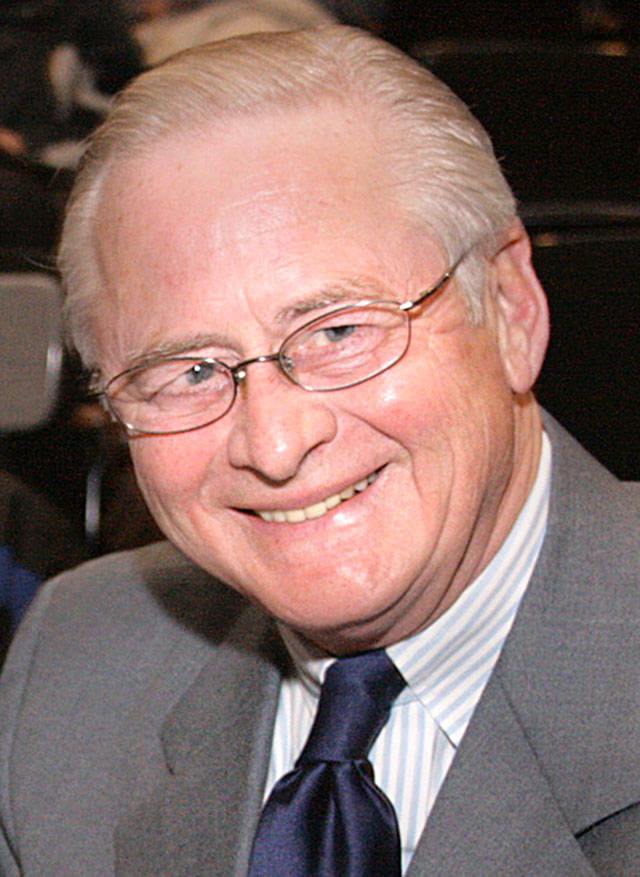Today the Puget Sound region faces major challenges as family wage jobs have not kept pace with the cost of affordable housing, causing too many employees to live places other than where their job is.
Yesterday, in the 1980s and 1990s, elected regional and suburban leaders faced the future and their most pressing policy challenges — “what will tomorrow look like?” And what are we going to do with the million people who are projected to move here? How will we provide housing and transportation for them and still protect our Northwest environment? Much like today’s battle over a border wall with Mexico, many wanted to build a wall between Washington and Oregon and trap all those northern-bound Californians in Eugene!
Cooler heads prevailed, and under the old Metro form of regional government and spanning more than a decade, several valley mayors in Renton, Kent, Tukwila and Auburn balanced their vision of the future with those of the Eastside and Seattle. They built the valley commuter rail system now in use. Metro was later absorbed into King County and replaced by Sound Transit, which with voters’ support started building the three-county transportation system currently under way.
The valley commuter rail fit regional planning. At the time, former Gov. Booth Gardner hired Mary McCumber, then Auburn’s planning director, to implement the Growth Management Act and draw a line east of Maple Valley and Covington to separate rural and environmentally-protected areas from the west side of the line, which would be urban and encourage growth at a higher level of density near current and future rail lines. New cities were established in Burien, SeaTac, Sammamish, Newcastle and Federal Way to ensure growth was controlled to urban standards and not sporadic as it had been. And the plan worked.
But “tomorrow is now today,” and we again face questions about population growth, the cost of both renting and buying, where people will live and what can they afford.
Microsoft, with former Gov. Chris Gregoire raising the call to action, has started the regional dialogue with its report “The Invisible Crisis” and the lack of affordable housing.
But it may not be an easy debate.
In Seattle, 75 percent of the residential land is zoned as single family, and as prices grow, more people move to the suburbs. Predictably, the prices in the suburbs increase and developers start looking for affordable housing to meet the demand, and usually settle on apartments or condominiums.
Recently, mayors in Auburn, Federal Way, Kent and Renton joined five Eastside mayors in signing a statement responding to the housing crisis, which says “we intend to do our part to break down barriers and provide incentives to substantially increase the supply of quality housing.”
Some of the ideas, while bold, are potentially controversial, and in part, include making available at no cost, or deep discount underutilized publicly-owned properties; increasing density near current or planned public transit; reducing or waving parking requirements in transit corridors and impact fees to help reduce development costs; streamlining and accelerating the permit process for low and middle–income housing projects; providing tax exemptions or credit to low or middle-income housing projects; and looking for innovative concepts.
Auburn Mayor Nancy Backus said the focus is for single-family housing and creative concepts such as clustering, or condominiums with common areas are possibilities. She noted with median costs sometimes exceeding $300,000, the goal would be to lower those costs to $250,000 for buyers. Federal Way Mayor Jim Ferrell has previously mentioned cottages or smaller homes as possible options.
The report further points to the high cost of renting, and suggests relaxing requirements that could reduce rent by hundreds of dollars per month. Renton Mayor Denis Law said, “This is a subject we will be prioritizing this year,” but he will be leaving office, and a solution on the topic may be part of the political battle to replace him.
Historically, if you want to start a community political battle in the suburbs, building a large apartment or condominium complex in or near a single-family neighborhood will achieve that goal. Many single-family homeowners believe that apartment renters are transient, and don’t have roots in the community, that they increase crime, lower property values, increase taxes to build more schools, and don’t vote or volunteer in ways that make the community better. They forget that almost all of us started in an apartment, because of affordability, when first introduced to the cost of living in the adult world.
And many empty-nesters who can’t afford to move to warmer climates, move to condominiums. Developers, who view the permit system as slow and costly, want to make a profit and there is more money in multi-family housing, and even more if communities relax height restrictions. Chambers of commerce will want any permit system streamlining to also include retail and commercial building projects, not just housing.
The mayors are pledging “to continue to address homelessness and low-income housing, and work to address the lack of affordability of middle-income housing.” Certainly worthy goals.
Microsoft is willing to bet millions of dollars that this plan will work, though their study is short of details on “how” it will work. As always, the devil is in the detail, and each city can choose its own direction.
This is an election year in all suburban governments, and when the politics of class, and housing, get intertwined with elections, we could be disappointed in how deep the political divide may be. Watch to see what your city will do with the challenge of affordable housing.
Federal Way resident Bob Roegner is a former mayor of Auburn. Contact bjroegner@comcast.net.
Talk to us
Please share your story tips by emailing editor@kentreporter.com.
To share your opinion for publication, submit a letter through our website https://www.kentreporter.com/submit-letter/. Include your name, address and daytime phone number. (We’ll only publish your name and hometown.) Please keep letters to 300 words or less.

